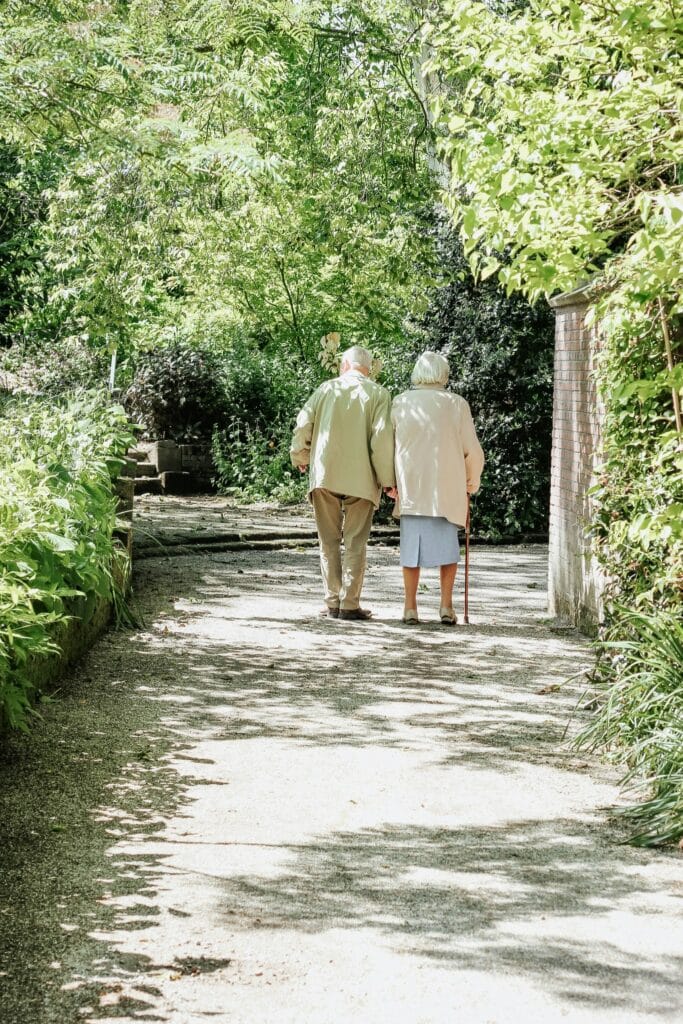
Today we’re going to talk about a “life and death” situation that no one talks about: 100% of us are going to die, and at least 50% of us who survive past the age of 65 will spend a substantial period of time in a long term care facility. If you have a loved one who already has dementia or Alzheimer’s diagnosis, he will almost certainly spend some time – perhaps years – in a care facility. We want to help you know how to protect yourself and your loved ones!
We usually don’t think about it when we’re younger – and some won’t even talk about it when they’re older- but life has a pretty predictable path. There is still 100% correlation between birth and death. And while there are many different causes of death, due to advances in medicine and healthcare there’s a pretty good chance that we’re only going to die in one of two ways:
- We die suddenly, or relatively quickly.
- We die progressively over a long period of time and we are maintained by expensive drugs, medical procedures, and nursing homes at an extremely high cost…like almost all who receive an Alzheimer’s diagnosis.
One of the worst things about a lingering death is that our health care system was not set up to provide for us when we have a chronic care need. When you get a diagnosis that means you will not get well for the rest of your life, you are pretty much on your own. You must use up all your assets- usually down to about $2,000 – before you can qualify for government help. ( please note that strategies exist to protect your asset)
I call the typical aging path “the elder care journey.” What I mean by that is most people start their early retirement years as healthy, vigorous seniors, but a high percentage of us will later experience mobility or memory problems. Once we begin to have mobility and memory issues, we become a “declining senior.” In my experience, 90% of those who reach the declining senior stage will need substantial in home care or nursing home care prior to their death.
Of course, a person can die suddenly anywhere along this timeline, but unless there is a catastrophic event or illness, most seniors will follow this path. The truth is, our legal and financial planning should take the elder care journey into consideration to be able to provide you with the best care and financial security.
Well, as you all know, life does eventually end-but that’s really not the end of the journey for the surviving family. It is my experience that many couples are not really aware of all the issues that arise when the first spouse dies. For example, did you know that the survivor spouse will lose one of the two Social Security checks? In addition, the survivor spouse may lose some or all of any pension. If you don’t think about the fact that your spouse might survive you, you may not take the appropriate steps to ease the blow for the healthy spouse. It is my job as an elder law estate planner to review both your legal and financial resources.
The truth is that at the very beginning of any estate planning, one of the biggest things to keep in mind are long term care costs, so you can provide the best possible benefit for the healthy spouse. As I mentioned, when the first spouse dies, the survivor spouse is going to have to live on only one Social Security check, and may lose any pension (or a 50% portion of the pension) that their spouse had during life.
On top of that, once a spouse becomes ill with Alzheimer’s, Parkinson’s, or other long term illness, it’s easy to become so focused on
caregiving, it’s hard to think about anything else but the immediate problem.
What’s more, there’s a good chance a wife will outlive her spouse, often by seven years or more. Seven years without one of the Social Security checks- and having had all the money spent on the first spouse’s long term care- can totally devastate the life and health of a loved one. After all, while the grocery bill might be a little smaller, most of the daily costs of living for the healthy spouse are going to stay the same.





